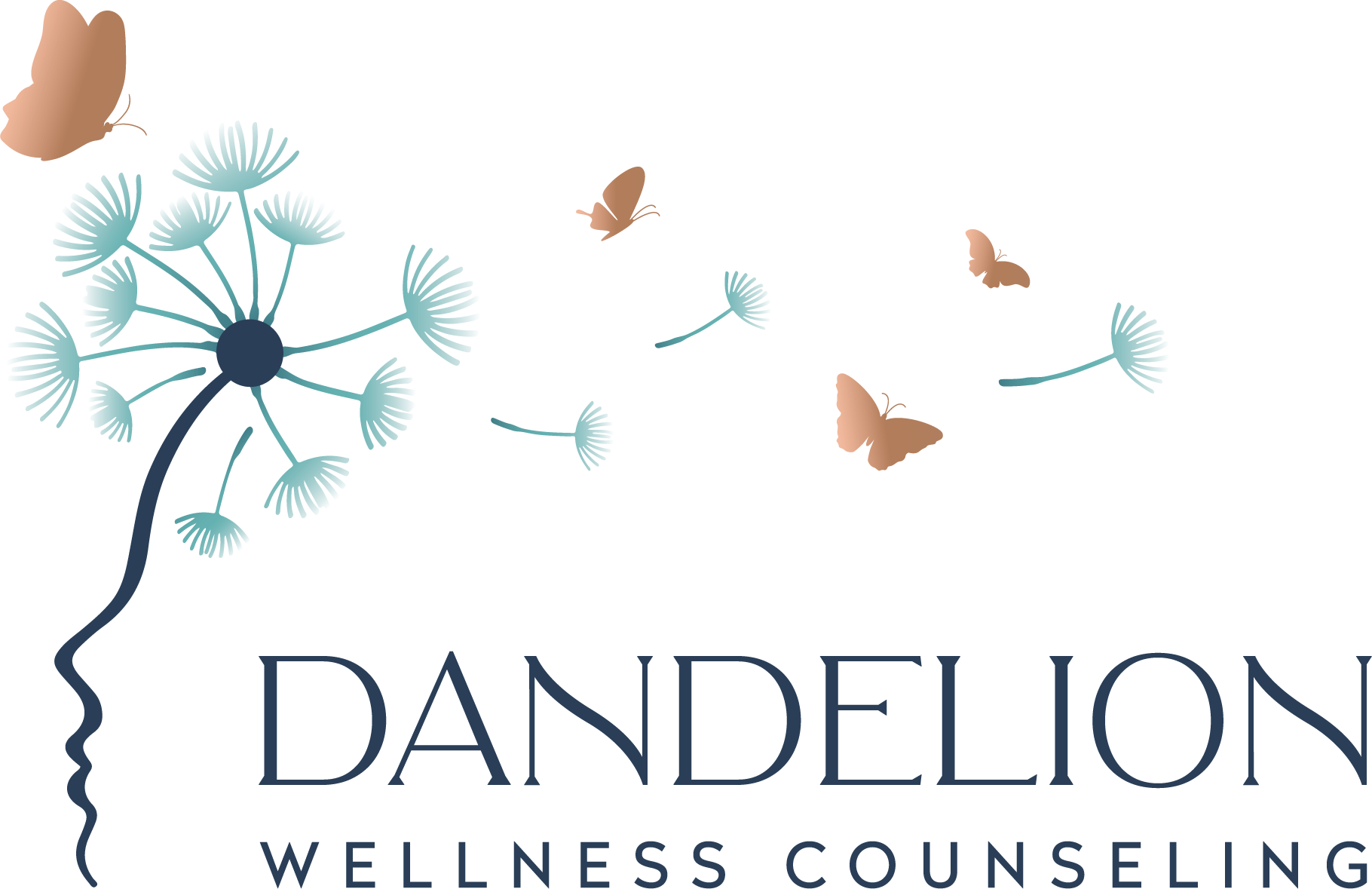How CBT for Depression Works: What to Expect in Your First Sessions with Dandelion Wellness Counseling

Looking for Therapy Support? Here's How We Can Help:
Introduction
When you’re navigating the fog of depression, therapy can feel like a lifeline—but also a mystery. If you’ve considered getting help and have heard about CBT (Cognitive Behavioral Therapy), you might be wondering: What does it actually involve? What will my first few sessions look like? Will it really help me feel better?
These questions are common, especially for those stepping into therapy for the first time or after trying other approaches that didn’t quite click.
At Dandelion Wellness Counseling, we specialize in compassionate, personalized depression counseling that integrates proven tools like CBT with mindfulness, somatic work, and narrative therapy. If you’re curious about how CBT works specifically in the early stages of counseling, this guide is here to demystify the process and help you feel more informed—and less alone.
Section 1: Why CBT is a Go-To Method for Depression Counseling
Cognitive Behavioral Therapy (CBT) is one of the most studied and recommended forms of psychotherapy for treating depression—and for good reason. CBT focuses on identifying and challenging the thought patterns and behaviors that fuel depressive symptoms.
Rather than digging endlessly into your past, CBT is practical and action-oriented. It helps you understand how your thoughts affect your feelings and behaviors—and how you can change those patterns to feel better.
CBT is effective because it targets the cycle of depression:
- You think something negative about yourself or your circumstances
- That thought triggers hopelessness, anxiety, or withdrawal
- You behave in ways that reinforce that thought (like isolating or avoiding responsibilities)
- The result? Your depression deepens
CBT works by interrupting this cycle. It gives you tools to question and reframe the negative beliefs that keep you stuck. Over time, this shift in thinking can lead to more balanced emotions and healthier behaviors.
At Dandelion Wellness Counseling, CBT is one of the core therapeutic tools we use, but we don’t apply it in a rigid, one-size-fits-all way. Instead, we tailor it to fit your unique needs, combining it with other evidence-based methods for a well-rounded approach to healing.
Section 2: What You Can Expect from Your First CBT Sessions
Starting therapy can feel intimidating. You might wonder what to say, whether you'll be judged, or if you’ll even know where to begin. Let’s break down what those first sessions often look like when you begin depression counseling with a CBT lens.
Session One: Getting to Know You
The first session is about connection—not diagnosis.
You’ll spend time sharing what brought you to therapy, how depression has been affecting your life, and what you’re hoping to get out of counseling. Your therapist may ask questions like:
- How long have you been feeling this way?
- What are your day-to-day experiences like?
- Are there specific thoughts or situations that feel especially overwhelming?
At Dandelion Wellness Counseling, our therapists meet you exactly where you are—with no pressure to have the “right” answers or a polished story. We understand that starting therapy takes courage, and we approach every client with warmth, presence, and care.
Session Two and Beyond: Building Awareness
Once you’ve shared some of your story, your therapist will begin helping you notice patterns—especially in your thoughts. For example, you might explore:
- Automatic thoughts: the immediate, often harsh self-talk that happens without conscious awareness
- Cognitive distortions: patterns like black-and-white thinking, catastrophizing, or discounting positives
- Emotional triggers: situations or interactions that seem to worsen your symptoms
These insights don’t come all at once, and they’re never forced. We help you slow down, observe, and gently start making connections—so that over time, you can begin shifting the mental habits that keep you stuck.
Section 3: Common Themes Explored in CBT for Depression
CBT isn’t just about thinking “happy thoughts.” It’s about learning to see your thoughts more clearly—and deciding which ones actually serve you. Here are some of the core themes that tend to come up in depression counseling using CBT:
1. Identifying Core Beliefs
These are deep-rooted beliefs you’ve internalized over time—often unconsciously. Beliefs like:
- “I’m not good enough”
- “Nothing I do matters”
- “I always mess things up”
CBT helps you examine where these beliefs came from and whether they’re actually true—or just familiar.
2. Reframing Negative Thoughts
This is one of the most practical tools of CBT. Once you recognize unhelpful thoughts, you learn how to replace them with more balanced alternatives.
Example:
- Original thought: “I failed that meeting. I’m a disaster.”
- Reframed thought: “That meeting didn’t go how I wanted, but one mistake doesn’t define me.”
It’s not about lying to yourself—it’s about learning to tell the whole truth, not just the harshest part.
3. Behavioral Activation
Depression often causes us to withdraw from the very things that could improve our mood—like social interaction, exercise, or hobbies. Your therapist may help you set small, achievable goals to gently reintroduce positive activities into your routine.
At Dandelion Wellness Counseling, these goals are always collaborative and tailored to your comfort level. We never push—we partner with you to move at a pace that feels supportive.
Section 4: Combining CBT with Other Tools for More Holistic Healing
CBT is powerful, but we know that healing isn’t just cognitive—it’s emotional, physical, and even spiritual for some. That’s why we integrate other therapeutic modalities into your depression counseling sessions.
Mindfulness Practices
We use mindfulness-based tools to help you become more aware of your inner world without judgment. This can help reduce anxiety, increase emotional regulation, and make CBT techniques more effective.
Narrative Therapy
This approach helps you explore the “stories” you’ve internalized about your identity and your life. It gives you space to re-author your narrative—to define yourself beyond depression.
Somatic Techniques
Because depression isn’t just in your head, we incorporate body-based tools to help you reconnect with yourself physically. This might include breathwork, grounding techniques, or gentle movement to release tension and trauma stored in the body.
DBT (Dialectical Behavior Therapy)
For clients who struggle with intense emotions or self-criticism, DBT offers additional skills in emotional regulation, distress tolerance, and interpersonal effectiveness.
All of these methods are part of our integrative approach at Dandelion Wellness Counseling. We don’t believe in “just CBT” or “just talk therapy.” We offer a dynamic, customized experience that honors all parts of you.
Section 5: Is CBT Right for You?
CBT is especially helpful for people who:
- Experience ongoing negative self-talk
- Feel stuck in patterns of avoidance or withdrawal
- Want a practical, structured approach to therapy
- Have tried other therapies that felt too passive or unstructured
But CBT doesn’t work the same way for everyone—and that’s okay. At Dandelion Wellness Counseling, we work with you to assess how you're responding to therapy and make adjustments as needed. If CBT alone isn’t creating the change you want, we may integrate other tools, explore deeper emotional work, or shift focus entirely.
We also understand that many people come to us after therapy has failed them elsewhere. Maybe you didn’t feel seen, safe, or supported. We’re here to do it differently—with authenticity, inclusivity, and deep respect for your unique path.
Section 6: How to Get Started with Depression Counseling
If you’ve been thinking about starting therapy but have hesitated because you didn’t know what to expect, we hope this guide has given you more clarity—and more confidence.
Here’s what happens when you reach out to Dandelion Wellness Counseling:
- Initial Consultation – You’ll schedule a call or send an inquiry to briefly share what you’re looking for.
- Therapist Match – We match you with a therapist who aligns with your needs and preferences.
- First Session – Your therapist will create a space that feels welcoming, gentle, and grounded in compassion.
- Ongoing Support – Together, you’ll build a therapeutic plan tailored to your goals, incorporating CBT and other tools as needed.
We offer both in-person and virtual sessions, depending on your preference and location.
Conclusion: Start Where You Are
CBT isn’t a magic fix—but it’s a well-supported, empowering path that can help you understand yourself more clearly and interrupt the cycles that feed depression. And with the right therapist by your side, that path doesn’t have to feel overwhelming.
At Dandelion Wellness Counseling, we offer more than just depression counseling. We offer a partnership in healing—one rooted in empathy, evidence, and deep belief in your ability to feel better.
If you’re ready to explore CBT in a space that sees and supports all of you, book a session today. You don’t have to carry it alone anymore.
